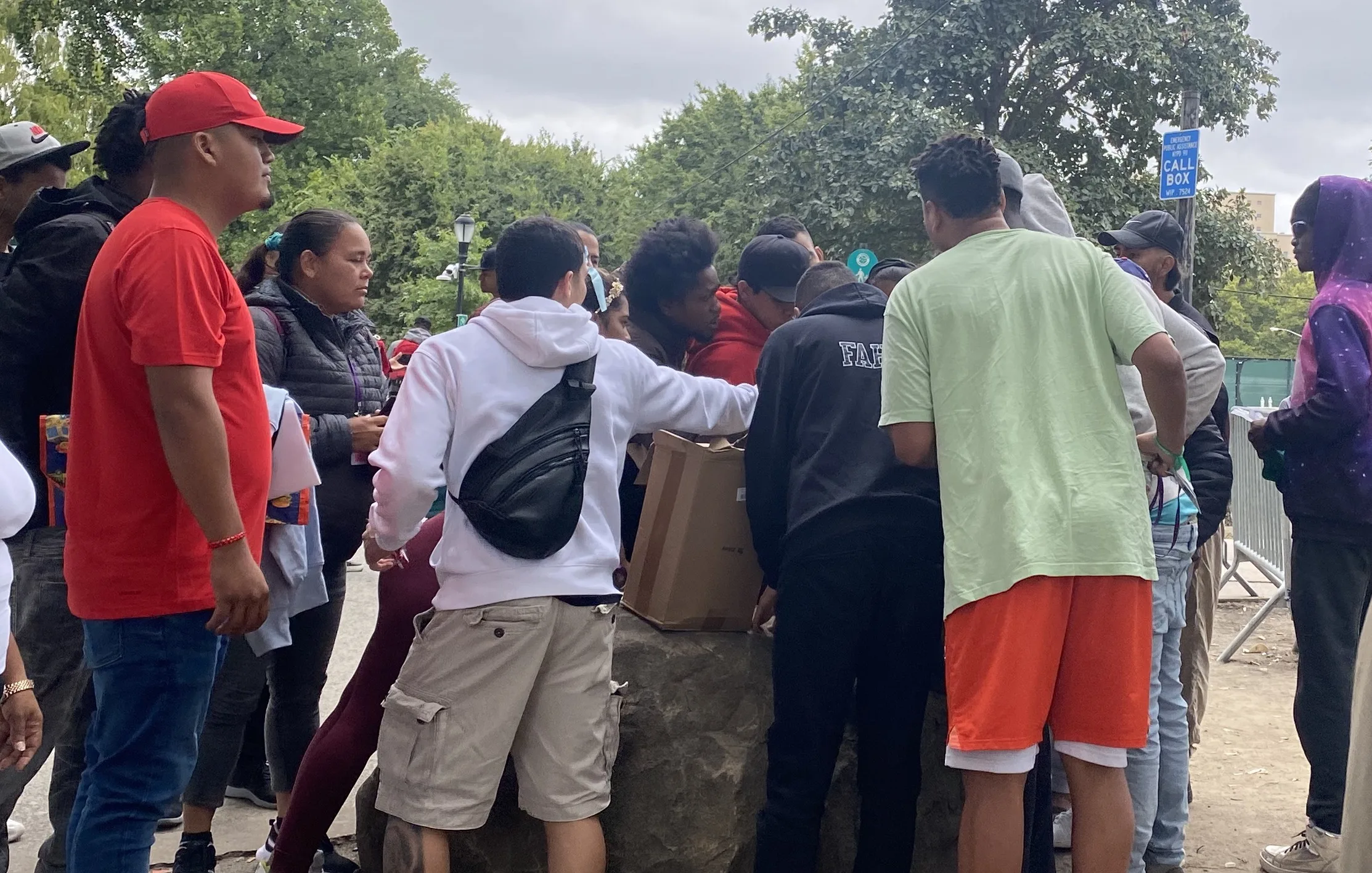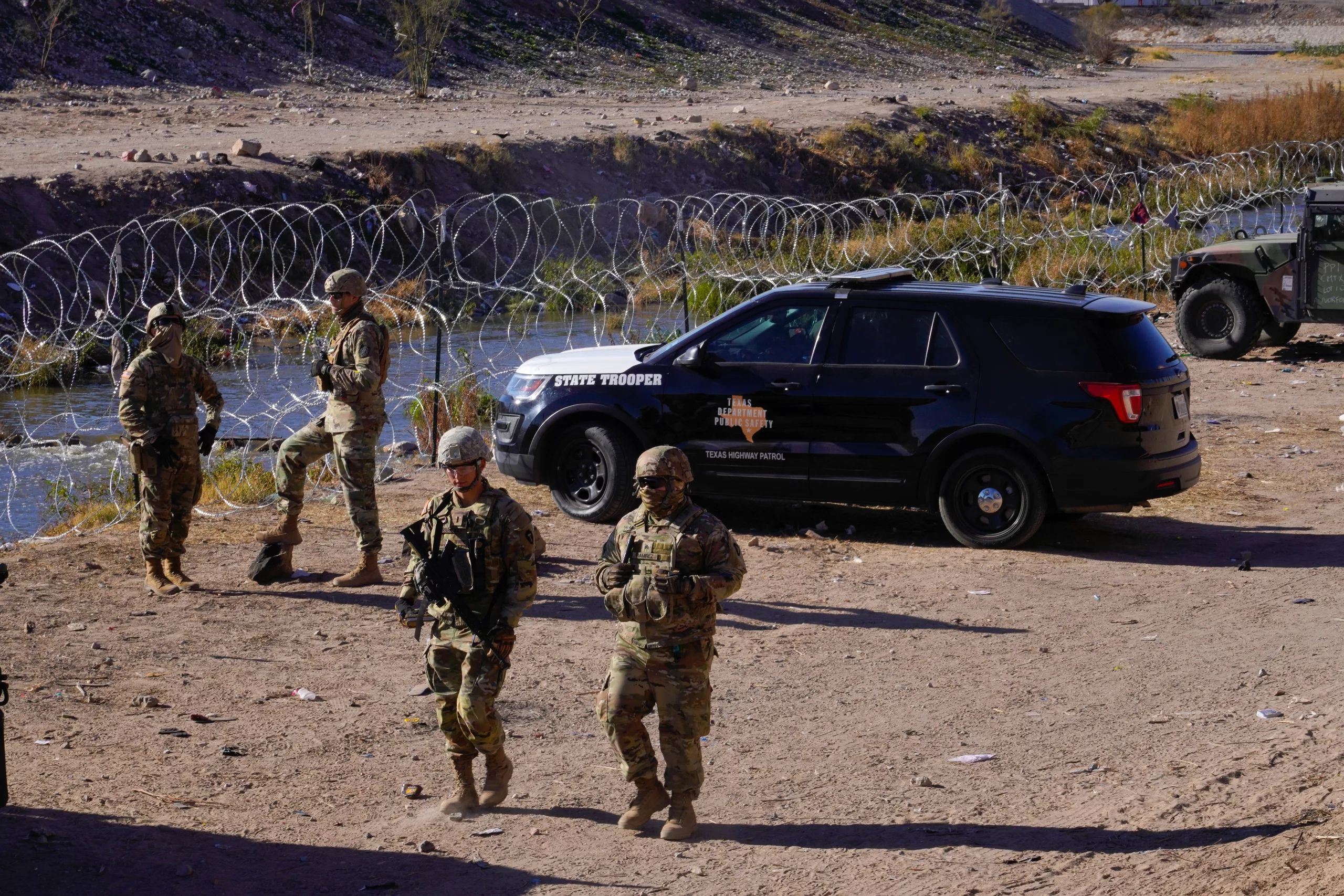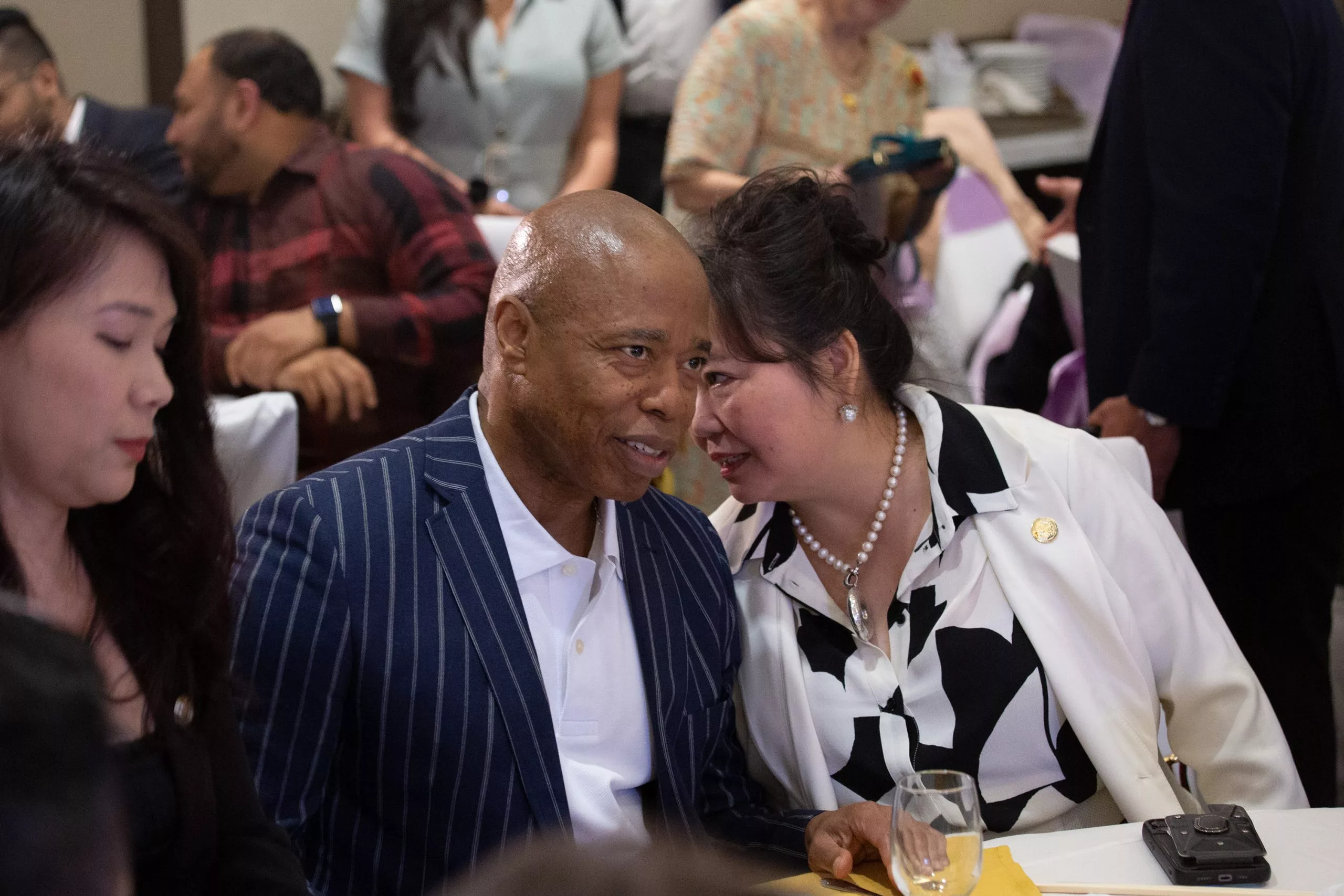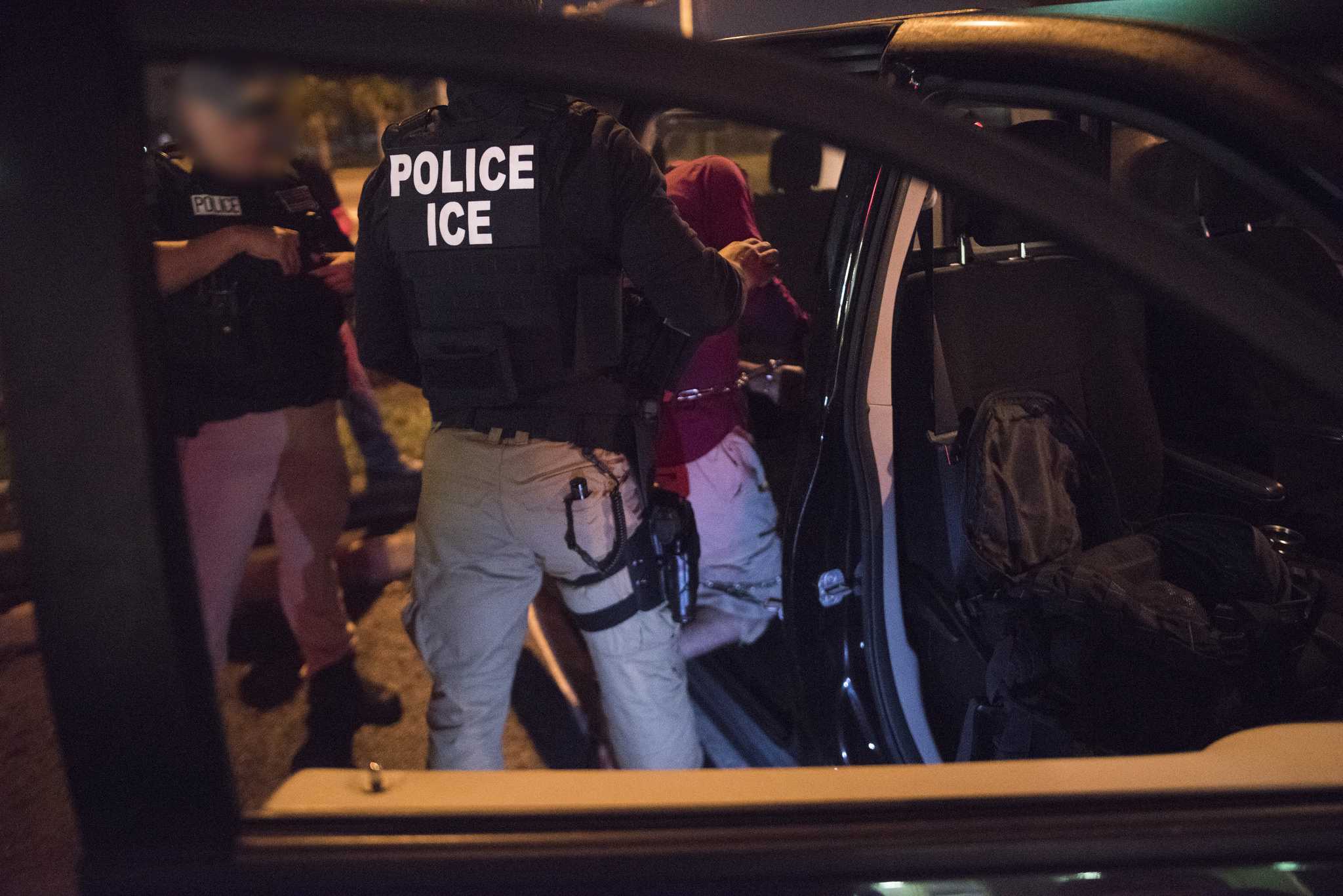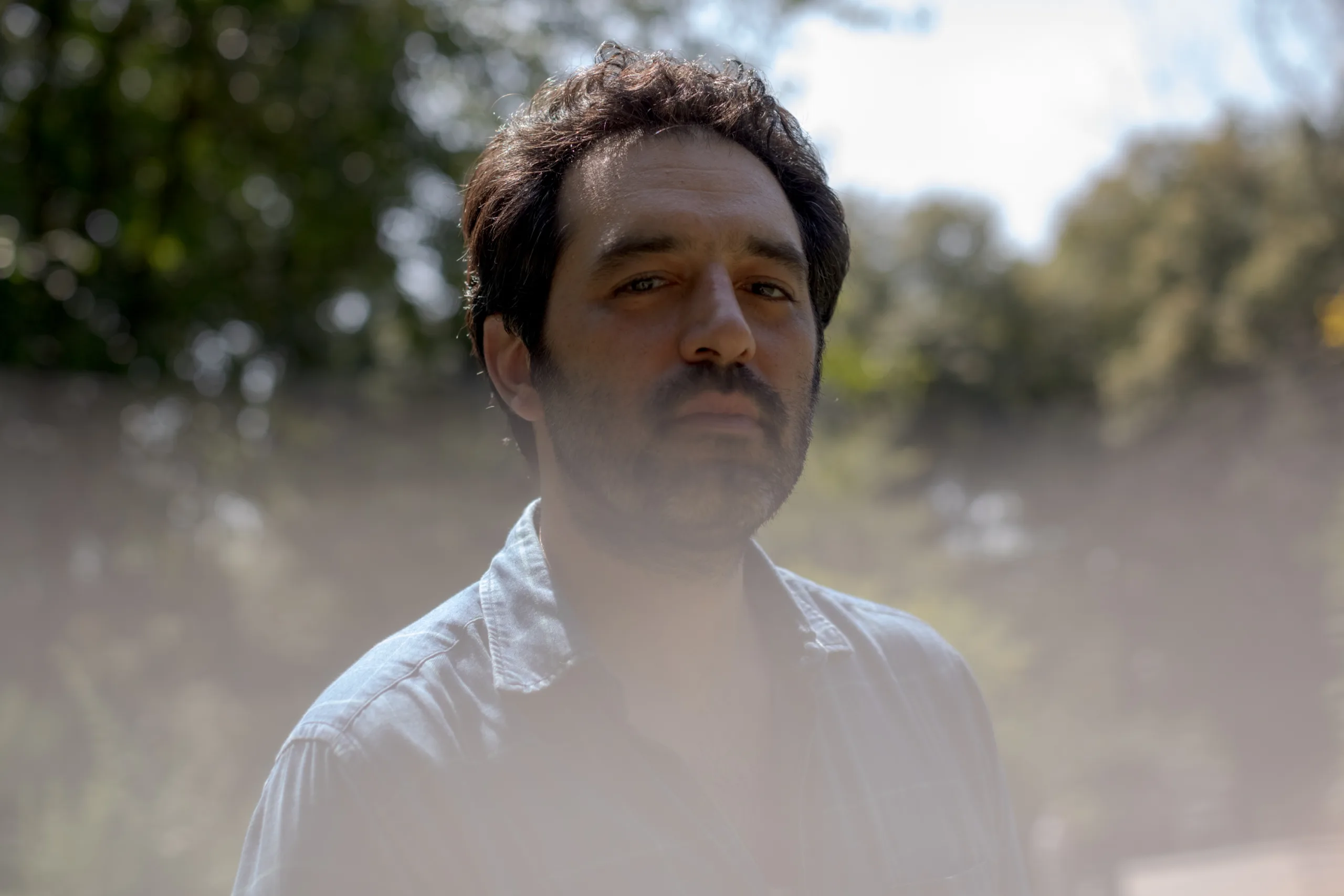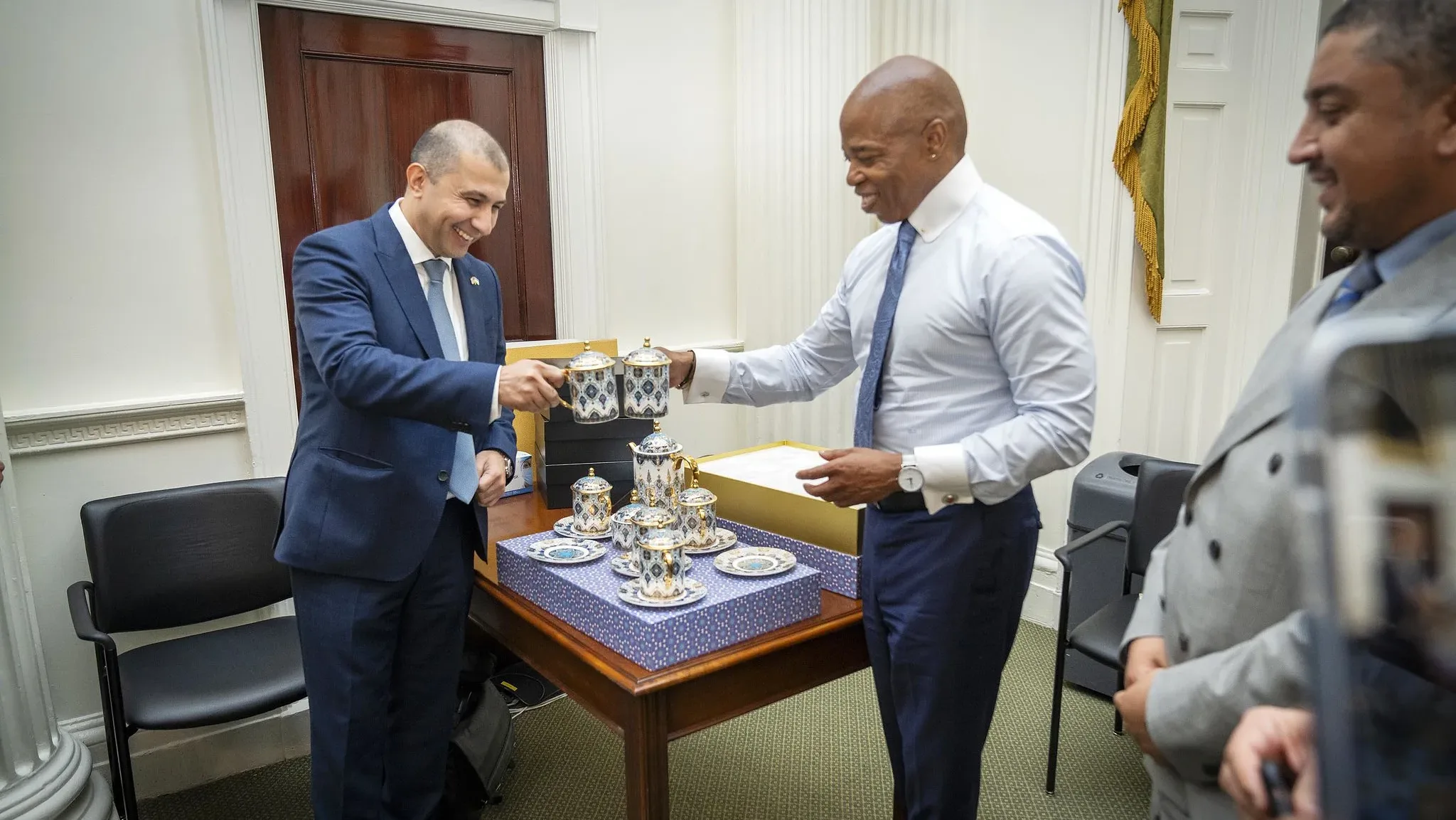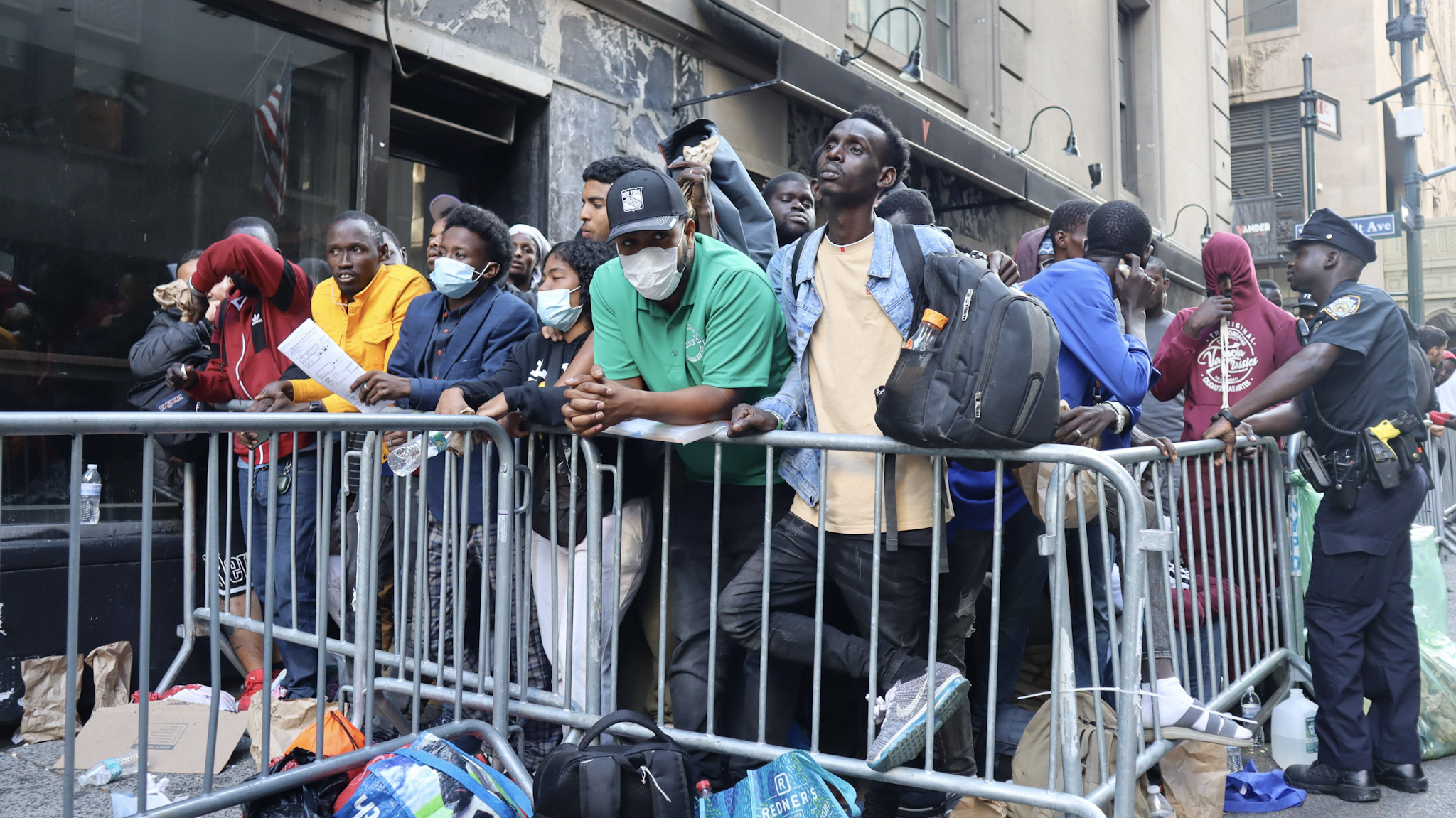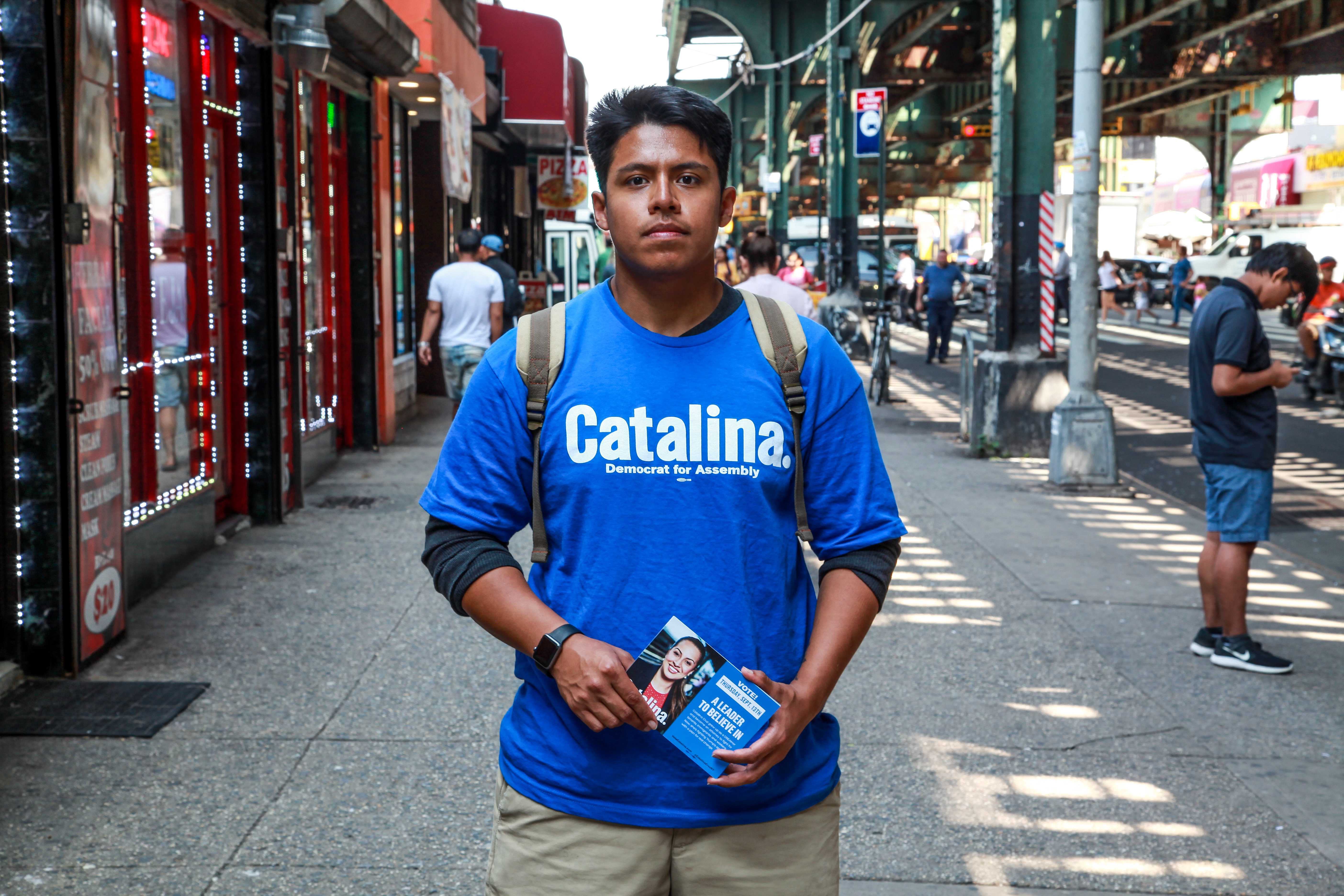On a chilly fall day last week, a van filled with community organizers, mutual aid workers, and volunteers arrived at Hall Street in Clinton Hill, Brooklyn. Since the city opened a temporary shelter there for migrants in two buildings last summer, the street in the north Brooklyn neighborhood has become home to thousands of asylum seekers and migrants.
“Are you here for job training?” asked one of the African migrant men at the shelter as he walked passed the group stepping out of the van. The group of 10 had instead arrived to assess the needs of the thousands of Black and African asylum seekers in the city’s temporary shelters as part of a tour organized by Africa is Everywhere, which describes itself as a “social praxis initiative” working to meet the urgent needs of African service organizations. The three stops during the tour were Hall Street in Brooklyn, Randall’s Island, and a migrant services nonprofit organization in the Bronx, Afrikana.
According to the tour group of volunteers and mutual aid workers, asylum seekers in the city’s care have been struggling to gain stability due to the city’s policies and racial inequality. The group was also there to distribute toiletries and materials like pamphlets, guides, clothing (socks, head warmers, and gloves) as well as information for upcoming immigrant services events in several languages including Arabic, French, and Spanish.
Also Read: Over 1,000 Black Migrants Gather at City Hall to Voice Struggles
Since 2022, African service organizations have supported Black, African, and Arab migrants facing a lack of resources from the city. These groups, which include faith-based institutions, cultural advocacy groups, immigrant legal services nonprofits, and mutual aid efforts have expanded operations to assist migrants by providing resources in multiple languages, including Arabic, French, and Wolof, among others.
During the tour, Jodi Nicole, a New York organizer with Africa is Everywhere, highlighted the lack of language translation services and case management at migrant shelters in New York City. “People are given a one-page printout in English to say, ‘Here’s your help.’ But then the general public doesn’t understand the disconnect,” she said. “That’s all of our jobs. To push the city. Because it’s reaching a breaking point at that shelter.”
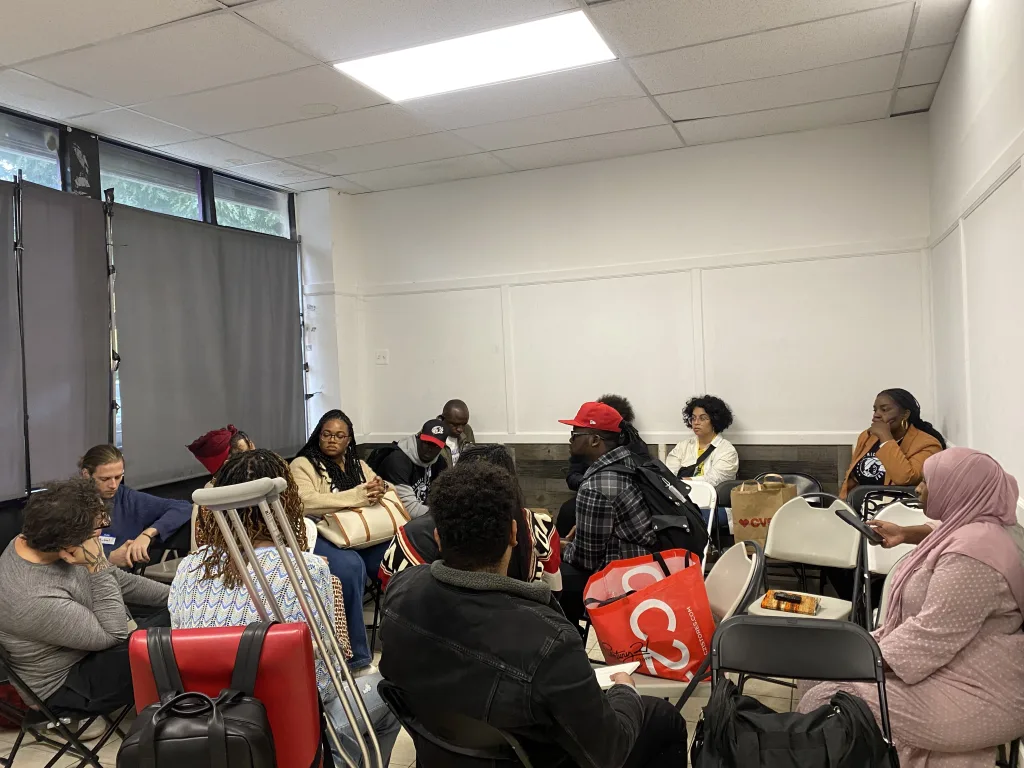
Grassroots groups like Clinton Hill/Fort Greene Mutual Aid offer services to migrants, often relying on limited, bootstrapped resources, while city-funded contractors receive millions to operate the shelters. “There’s very little, if any, social work connecting [migrants] to social services, language proficiency,” said Ani, a volunteer with Clinton Hill/Fort Greene Mutual Aid, who preferred to go only by their first name. They added that the Hall street shelter has become a place “where people are just stuck.”
When illustrating issues with the city’s migrant shelters, tour representatives pointed to RXR, a commercial real estate firm that owns the two buildings housing migrants on Hall street. In the summer of 2023, RXR signed a licensing agreement with New York City Health + Hospitals for a large-capacity migrant respite center. The city paid RXR around $30,000 on a monthly basis for building operations of the respite center. The city also hired a contractor, MedRite, to staff the respite center, as well as Mulligan Security to provide fire guards in the case of emergency. All together, the city awarded the three companies contracts of nearly half a billion dollars yearly. Meanwhile, grassroots groups rely on minimal resources for migrants and asylum seekers, tour organizers said. “Developers have been contracted with millions of dollars, and we are operating, truly, like a shoestring and it’s just neighbors and volunteers,” Ani said.
Also Read:After a Year of Housing Migrant Men, Stockton Shelter Closes
Clinton Hill/Fort Greene Mutual Aid started making arrival booklets which are now in seven different languages that they are hoping to have in public library branches across all the boroughs. The booklets indicate where immigrants can go for food, clothes, help with your asylum application and English classes. For food, they refer migrants to EV Loves New York, which is a community kitchen in the East Village that cooks and shares meals with neighbors.
Migrants at the Hall Street site also confirmed the city’s 30- and 60-day shelter limits have created instability and have disproportionately impacted African migrants, who face language barriers and fewer city resources to help them navigate the city. With the constant threat of eviction, migrants often lose belongings and must start over, all while facing limited access to education, job training, and even obtaining NYC ID due to long lines.
A growing number of unaccompanied minors have also appeared at migrant shelters. Despite the efforts of organizations like The Door and the Safe Passage Project, a shortage of lawyers and guardians for children with valid claims to Special Immigrant Juvenile Status persists.
Adama Bah, founder of Afrikana, shared alarming concerns about the rise of trafficking of migrants within shelters. She recounted how, recently, a woman narrowly escaped being trafficked at Randall’s Island and sought help from Afrikana. Nneka Okpara, an immigration attorney with Immigration Law and Justice in New York, was able to provide her guidance. There have been several cases of sex trafficking, Bah said, but many victims are afraid to speak up.
Diane Enobabor, founder of Africa is Everywhere, concluded that the tour exposed a severe disconnect between mutual aid efforts and disparate migrant shelters. While sites like Hall Street receive attention due to their location, places like the migrant sites on Randall’s Island, Creedmoor Psychiatric Facility, and an airport warehouse in JFK are neglected. Some other migrants have opted to take transportation tickets out of the city or back to their home countries, in what Enobabor says is “self-deportation,” through a ticketing program funded by the city government. Voluntary deportation is a strategy that the United States government has used for over a century to force people out.
“The institutions that were supposed to absorb people were ignored,” Enobabor said. “And there was a moment to actually develop the community to be more inclusive, and the city chose to do something else,” Enobabor said.
Data from the mayor’s press office indicates that more than 218,200 newly arrived migrants have passed through the New York City shelter system, and over 210 emergency shelters opened in response since the spring of 2022. The city told Documented there are currently 61,200 migrants currently in its care.
The tour included representatives from American Friends Services Committee, African Bureau for Immigration and Social Affairs, the Refugee Translation Project, the Black Institute, an immigration attorney with the Immigration Law and Justice Network and Immigrant ARC, a mutual aid volunteer with Clinton Hill/Fort Greene Mutual Aid, and a PhD student at CUNY doing research on African migrants in New York. Documented also provided information guides in French and Spanish to migrants on the tour.
